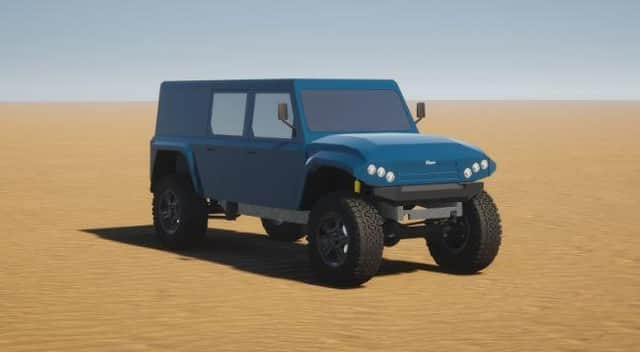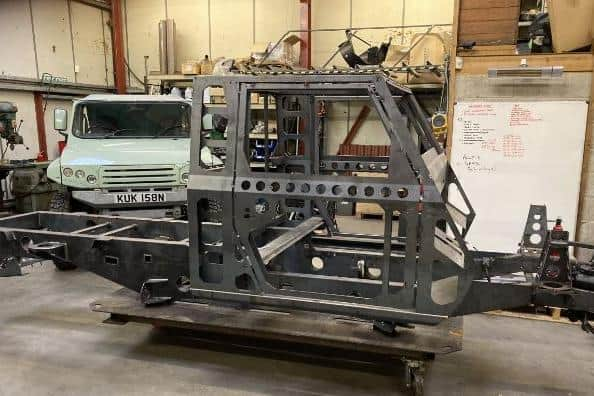Electronic 4x4 to be manufactured in Glasgow


The decline of car making, despite a brief revival with the Hillman Imp in the 1960s, has been well-documented but could we be witnessing the green shoots of a revival in motor-making in Scotland?
That is the hope of Russ Peterson and Ross Anderson who founded All Terrain All Electric Ltd in 2019 and at the tail end of 2020 and have begun construction of their Munro Mark-1 electric vehicle (EV) which they describe as a “back-to-basics, utilitarian four-wheel-drive”.
Advertisement
Hide AdAdvertisement
Hide AdThe pair say the Munro Mark-1 will be on the road by February when they plan to road test it around Europe for 150,000 miles.


The cars will be made at the company’s workshop in Dalmarnock with production beginning in November 2021 and the cars, which will be available to buy online only, costing £50,000.
Ross Anderson said: “We selected Glasgow for our headquarters because of its engineering heritage and local manufacturing economy. Scotland is also working towards a rapid transition to electric vehicles, with a largely free public charging network and generous interest-free loans for buyers of new and used electric cars.”
The Mark-1 will have a driving range of 150 miles before it needs a charge and a battery time recharge, with a direct current (DC) of 30 minutes and five hours with an alternating current (AC).
Ross said the company had made every effort to minimise the carbon footprint of its supply chain.
He said: “The vehicle’s configuration is unique in the EV market: it features a body-on-frame design with live axles front and rear, the drive motor coupled to a central transfer box. This gives the vehicle unparalleled off-road performance.
“The body and chassis are sourced from Ibex Automotive in Yorkshire, who have been developing four-wheel-drive vehicles for over 30 years. Components for the vehicle are sourced from companies as locally as possible, in an effort to minimise carbon impact and support the UK economy.
“We decided early on that we weren’t looking to re-invent the wheel. We’ve used straightforward and readily available components to minimise the cost of production and provide owners with an accessible means to maintain and repair their own vehicle.”
Advertisement
Hide AdAdvertisement
Hide AdDevelopment of the vehicle has been in progress since early 2019, when Russ and Ross came up with the design for a rugged four-wheel-drive EV.
They were inspired during a camping trip to the Scottish Highlands, and initially set to work converting a Land Rover to electric before pivoting the company to develop an all-new 4x4 electric vehicle.
“When we got to Braemar we saw a bunch of EV charging stations, and opposite there were Land Rover vehicles kitted out with roof tents and other adventure gear. We loved the idea of a rugged electric vehicle for camping and exploring, but it didn’t seem to exist yet. With reliable charging infrastructure stretching across Europe and beyond, we started thinking about the possibilities.
“We initially set to work converting a used four-wheel-drive vehicle to electric, but found there were lots of limitations. We also initially thought that converting used vehicles would be kinder to the environment because it’s “upcycling”, but in a vehicle which was designed to have an engine you end up throwing away half of the car, which felt very wasteful. We decided the better approach was to develop our own bespoke base vehicle, tailored to our unique specifications.”
Ross said that to keep costs low they decided to shun the traditional model of selling cars through dealerships and would instead sell direct to the consumer.
He said: “The company doesn’t have a dealer network and will instead take orders online, delivering vehicles direct to buyers at home. Demonstrations, servicing and repairs will be provided remotely where possible via our service fleet, which are electric themselves. This step aims to cut overheads like showroom rent and commission, allowing the vehicles to be sold at a competitive price despite being small-volume and highly bespoke.”
Customer demonstrations will start spring 2021, with orders opening in the summer and first deliveries by early 2022.